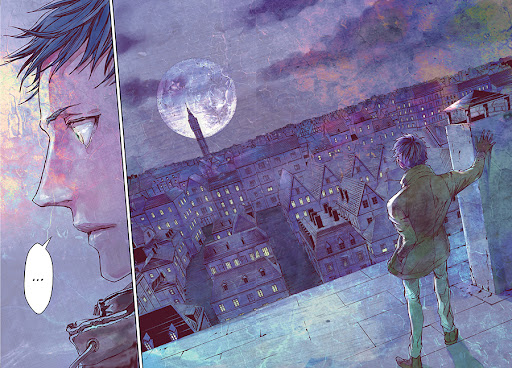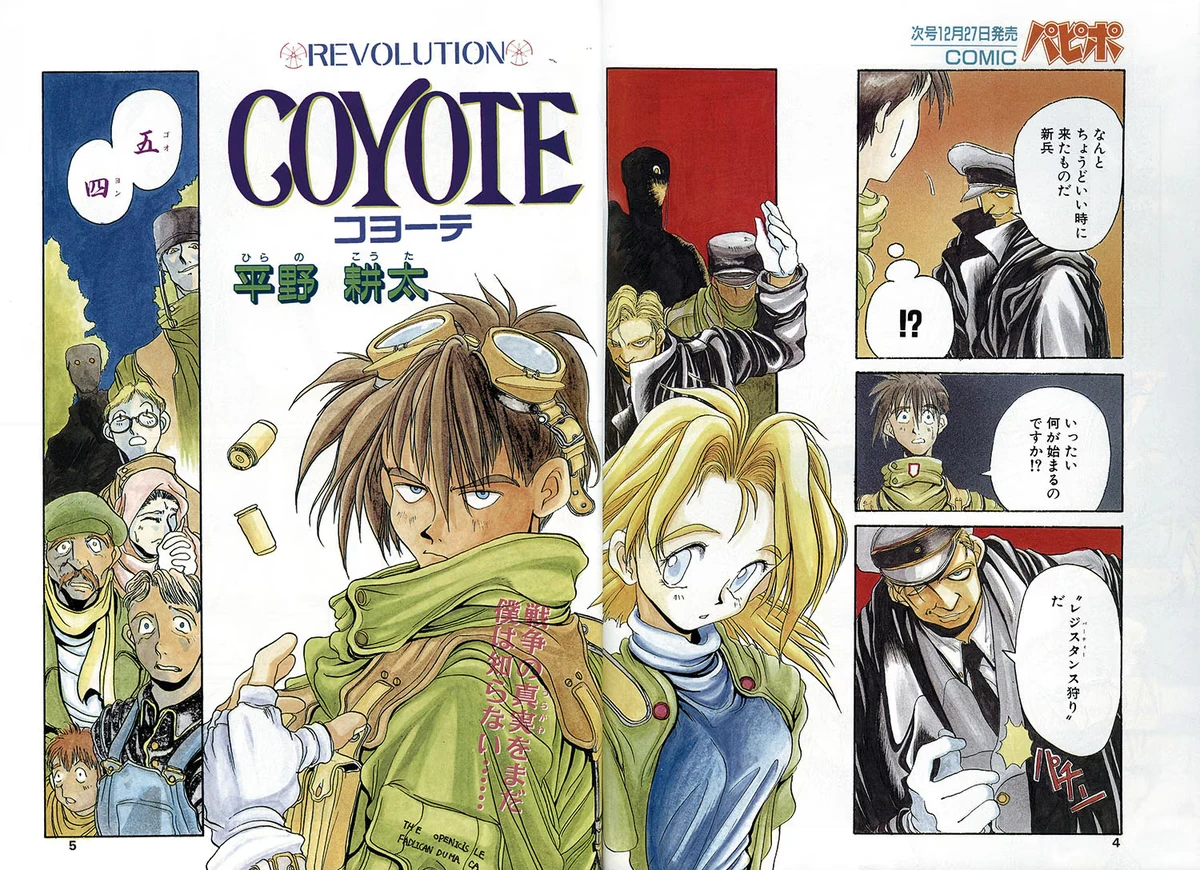A deep, personal review of Coyote manga Ranmaru Zariya’s yaoi tale of forbidden love, werewolves, and mafia feuds. This article explores its story, art, themes, and emotional weight, while offering an honest perspective on whether it’s worth your shelf space.
Coyote Manga Review: Star-Crossed Yaoi Romance
I first stumbled upon Coyote while browsing ComicK, and to be honest, I wasn’t sure what I was walking into. The cover promised a mix of passion and danger, and what I found inside was even more intense a bittersweet romance tangled with blood feuds, hidden identities, and raw desire.
Reading it on ComicK felt seamless, but beyond the platform’s smooth reading experience, what really struck me was how deeply this story pulled me in. At times, I was in awe of its elegance; at others, I rolled my eyes at its melodrama. That blend of highs and lows is exactly what makes Coyote worth talking about.

A Love Story on the Edge of Violence
From the very beginning, Coyote doesn’t hide what it is: a tale of star-crossed lovers caught in the middle of a war they can’t control. The titular Coyote shy, restrained, but simmering with unspoken strength crosses paths with a flamboyant pianist whose charm is impossible to ignore. Their connection is electric, yet constantly under threat.
What makes the romance so gripping is its fragility. Every exchange between them feels like a stolen moment, like they’re both aware the world outside would gladly crush their happiness. I couldn’t help but draw comparisons to classic forbidden love stories, except this time with the tension of werewolves and mafia politics looming overhead.
And yet, despite the danger, the manga never loses sight of its emotional core. Beneath the violence is an almost tender question: can two people define their love in a world designed to tear them apart?
The Werewolf Mythos With a Yaoi Twist
Werewolves in manga are nothing new, but what Ranmaru Zariya does here is clever. Instead of making them simply powerful beasts, Coyote paints them as vulnerable endangered, hunted, forced into secrecy. Coyote himself is not the alpha predator you’d expect; he’s fragile, conflicted, and sometimes lost in his own instincts.
This vulnerability plays beautifully against Marlene’s brashness. One feels like a flickering flame, the other like a spark ready to ignite it. That imbalance is what keeps their relationship unpredictable, and frankly, addictive to read.
Still, I’ll admit: some tropes felt a little too convenient. The sudden onset of Coyote’s “heat” as a plot device leans heavily into yaoi tradition it works for the genre, sure, but it can also feel forced if you’re not already a fan of those conventions. For me, it was equal parts thrilling and eyebrow-raising.
Artwork That Demands Your Attention
If there’s one thing that makes Coyote shine above many yaoi titles, it’s the art. Every panel feels alive. The cityscapes carry a gritty, almost cinematic weight, while the character designs balance beauty with realism. Zariya doesn’t rely on soft sparkles or comedic exaggerations; instead, the visuals lean into raw sensuality and sharp detail.
The intimacy scenes, in particular, are stunningly drawn. They’re explicit, yes, but never cheap or careless. You can feel the emotional weight in every touch, every glance, every pull toward or away from each other. It’s the kind of art that lingers after you close the page, reminding you why manga as a medium can express love and desire in such a visceral way.
That said, the polished realism might not appeal to readers who prefer more stylized, dreamy aesthetics. Personally, I found it refreshing an art style that doesn’t sugarcoat the messiness of passion.
Themes of Secrecy, Identity, and Desire
One reason I kept turning the pages was how Coyote intertwines its central romance with broader themes. Secrecy isn’t just part of the plot; it’s the air these characters breathe. False names, half-truths, unspoken fears all of it feeds into the sense that love here is dangerous but irresistible.
There’s also a heavy undercurrent of identity. Coyote’s struggle to balance his loyalty to his pack with his forbidden attraction mirrors the broader human experience of choosing between duty and self. That universal conflict made me feel closer to him, even when the supernatural backdrop felt far removed from reality.
And then, of course, there’s desire. The manga doesn’t shy away from showing lust in its rawest form sometimes tender, sometimes overwhelming. It’s not subtle, but it doesn’t need to be. Love, in Coyote, is both salvation and destruction.

The Strengths and Flaws in Balance
Here’s where my feelings get mixed. On the one hand, Coyote delivers an incredibly compelling blend of romance, tension, and visual beauty. On the other, some story beats fall into predictable territory. The forbidden love trope, the mafia feud, the “heat” subplot it all risks feeling a bit too familiar if you’ve read enough yaoi.
Still, I found myself forgiving these flaws because the execution is so strong. The pacing rarely drags, the characters are more layered than they initially appear, and the chemistry between Coyote and Marlene is undeniable. Even when I knew where the story was going, I wanted to follow.
If anything, the manga left me impatient for the next volume. It’s the kind of cliffhanger that frustrates you, but in the best way because you know you’ll come back for more.
Is Coyote Worth Reading?
Absolutely though with caveats. If you’re new to yaoi, be prepared for explicit content and genre-specific tropes that may feel over the top. If you’re a seasoned fan, you’ll likely appreciate the emotional depth, the stunning artwork, and the unique spin on werewolf mythology.
For me, reading Coyote on ComicK was a ride I didn’t regret taking. Smooth platform aside, the manga itself stands as one of the more memorable yaoi stories I’ve read in recent years. It’s not perfect, but its imperfections are part of what makes it so human, so raw, and so worth experiencing.
Would I recommend it? Yes. With a glass of wine, a quiet night, and maybe a willingness to let your guard down, Coyote has the power to pull you under—and keep you there long after the last page.
Read more:
